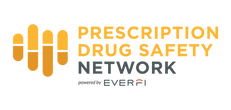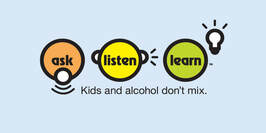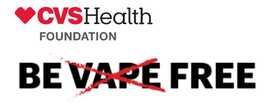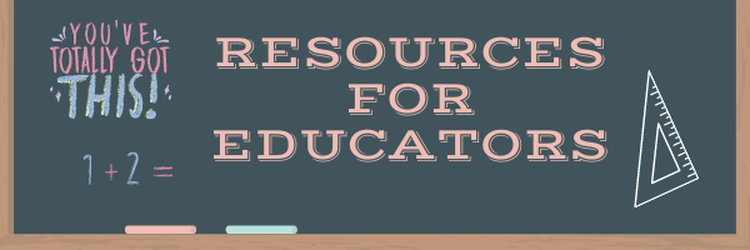CHEMISTRY 401: DRUG INTERACTIONS AND THE BODY
In partnership with Kenyon College, KSAAT invites you to download this free curriculum.
These modules were developed with the understanding that the sixth grade standards for science include a physical science component that focuses on atoms and molecules. These science ideas were combined with explorations of molecules that are familiar (sucrose or table sugar, caffeine, gluten, ethanol in consumable alcohol, and nicotine in tobacco products), with the intention that the students would become more informed consumers of foods and drugs and ideally make healthier choices with respect to their food and drug intake.
Ultimately each of the modules will contain discussion ideas and in-class hands-on activities that should allow the students to visualize what the molecules look like (they will have models to touch and move), how they interact in the body, and their down stream effects in the body. This work should be accessible to people that have some understanding of atoms and molecules, however the sucrose (table sugar) module has some introductory activities to help make the lessons useable for all. In addition, introductions using “non-drug” compounds may bring down conversational barriers that might be present if the first modules used are ethanol or nicotine.
Kits are available for building molecules in class, email [email protected] to obtain a kit.
Ultimately each of the modules will contain discussion ideas and in-class hands-on activities that should allow the students to visualize what the molecules look like (they will have models to touch and move), how they interact in the body, and their down stream effects in the body. This work should be accessible to people that have some understanding of atoms and molecules, however the sucrose (table sugar) module has some introductory activities to help make the lessons useable for all. In addition, introductions using “non-drug” compounds may bring down conversational barriers that might be present if the first modules used are ethanol or nicotine.
Kits are available for building molecules in class, email [email protected] to obtain a kit.

NaturalHigh.org
A free evidence-based program that is used in all 50 states and makes use of current scientific findings on youth behavior, brain development, social norming, and substance abuse prevention. The latest scientific research speaks to the power of positive example, of engaging influencers to create change in culture, and of course — the power of the natural high. This research shows that when young people find their true passions — those activities that uplift, motivate, and inspire them — and are supported in these choices by family, friends, school, and community, they are more likely to avoid drugs and alcohol. To access content that meets common core standards, click here.
A free evidence-based program that is used in all 50 states and makes use of current scientific findings on youth behavior, brain development, social norming, and substance abuse prevention. The latest scientific research speaks to the power of positive example, of engaging influencers to create change in culture, and of course — the power of the natural high. This research shows that when young people find their true passions — those activities that uplift, motivate, and inspire them — and are supported in these choices by family, friends, school, and community, they are more likely to avoid drugs and alcohol. To access content that meets common core standards, click here.

Prescription Drug Safety Network
Freedigital lessons to high school educators. During a time when rx misuse is up, students are spending more time at home, etc., this dynamic, digital experience informs students about the risks of prescription drug abuse and misuse, including:
Freedigital lessons to high school educators. During a time when rx misuse is up, students are spending more time at home, etc., this dynamic, digital experience informs students about the risks of prescription drug abuse and misuse, including:
- The importance of following prescription instructions precisely
- How to read and understand prescription labels, including caution or risk statements
- Safe use, storage and disposal of prescription medications
- The brain science of addiction and refusal skills

Ask, Listen, Learn
In 2003, Responsibility.org, alongside a team of educators and organizations specializing in elementary- and middle schoolers, developed Ask, Listen, Learn: Kids and Alcohol Don’t Mix. Ask, Listen, Learn is a completely FREE digital underage drinking prevention program for kids ages 9-13 (grades 4-7) and their parents and educators with the goal to reduce underage drinking. The information provided throughout the program guides adults with ways to start communicating with kids about alcohol and the developing brain– and how to continue talking to them as part of a lifetime of conversations. Both science and evidence-based, Ask, Listen, Learn is the most widely distributed underage drinking program of its kind. Click here to access free resources and lesson plans.
In 2003, Responsibility.org, alongside a team of educators and organizations specializing in elementary- and middle schoolers, developed Ask, Listen, Learn: Kids and Alcohol Don’t Mix. Ask, Listen, Learn is a completely FREE digital underage drinking prevention program for kids ages 9-13 (grades 4-7) and their parents and educators with the goal to reduce underage drinking. The information provided throughout the program guides adults with ways to start communicating with kids about alcohol and the developing brain– and how to continue talking to them as part of a lifetime of conversations. Both science and evidence-based, Ask, Listen, Learn is the most widely distributed underage drinking program of its kind. Click here to access free resources and lesson plans.

The Be Vape Free initiative is a confluence of like-minded organizations who have joined forces to tackle the use of e-cigarettes among our nation's youth through the creation and distribution of engaging content for grades 5–12 on the risks of e-cigarettes. By leveraging partner resources and working together as a collaborative initiative, we hope to keep students informed on the long-term health risks of vaping. Click here for access to content.

Identifying Drug Abuse Among Students: A Guide for Teachers
This guide is intended to help teachers in every branch of education catch up to what is currently known about drug and alcohol abuse and provide them with options of how to handle instances among their students. Keep in mind that this is only current information and portions of this guide may be rendered obsolete by future laws, drugs, or policies relevant to substance abuse. It is a comprehensive guide that educators can apply to multiple scenarios, even those that may occur outside of the classroom. Learn more...
This guide is intended to help teachers in every branch of education catch up to what is currently known about drug and alcohol abuse and provide them with options of how to handle instances among their students. Keep in mind that this is only current information and portions of this guide may be rendered obsolete by future laws, drugs, or policies relevant to substance abuse. It is a comprehensive guide that educators can apply to multiple scenarios, even those that may occur outside of the classroom. Learn more...



